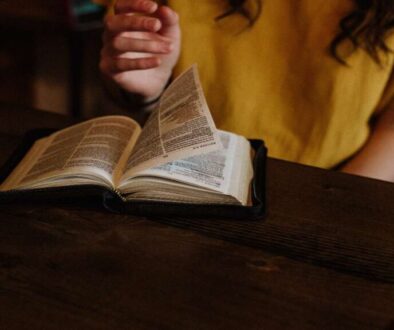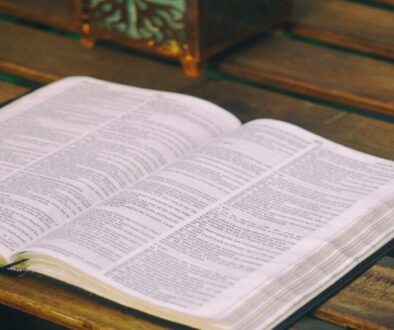Does Acts 20:7 Prove Sunday Worship In The Bible?
One of the Bible verses which Sunday-keeping apologists use to support their teaching of the observance of Sunday worship is Acts 20:7. The verse says, “Now on the first day of the week, when the disciples came together to break bread, Paul, ready to depart the next day, spoke to them and continued his message until midnight.” (Acts 20:7 NKJV, bold emphases added by me).
At first sight, the verse appears to support the idea that there were indeed the observance of Sunday worship in the days of the apostles in the first century CE. But an examination of original texts have shown that this was not the case. What led to this false idea was the mistranslation of the verse in some English versions of the Bible, perhaps due to some theological bias.
An examination of the Greek text of Acts 20:7 shows that the words “first day” were not written in the original Greek texts but were added by some English translators. The Greek text copied from the SBL Greek New Testament is as follows:
“Ἐν δὲ τῇ μιᾷ τῶν σαββάτων συνηγμένων ἡμῶν κλάσαι ἄρτον ὁ Παῦλος διελέγετο αὐτοῖς, μέλλων ἐξιέναι τῇ ἐπαύριον, παρέτεινέν τε τὸν λόγον μέχρι μεσονυκτίου”
An analysis of the verse, with the pronunciation and the translation in brackets, gives something like this;
εν (en; in) δε (de; but, then) τη (te; the) μια (mia; one) των (ton; of the) σαββατων (sabbaton; Sabbaths or Sabbath days) συνηγμενων (synegmenon; gathered) των (ton; the) μαθητων (mathiton; disciples) κλασαι (klasai; to break) αρτον (arton; bread) ὁ (ho, -) Παῦλος (Paulos, Paul) διελέγετο (dielegeto, talked) αὐτοῖς (autois, to them) μέλλων (mellōn, to depart) τῇ (tē, on the) ἐπαύριον (epaurion, next day) παρέτεινέν (pareteinen, he continued) τε (te, then) τὸν (ton, the) λόγον (logon, talk) μέχρι (mechri, until) μεσονυκτίου (mesonyktiou, midnight).
It should be noted that the words πρῶτος (prótos, first) and ἡμέρα (hémera, day) are not in the Greek text. What is contained therein are μια των σαββατων (mia ton sabbaton) which translates as one of the Sabbaths or one of the Sabbath days. It can be plainly seen that the translators gave us a completely different day from what Luke wrote.
Even before the King James Bible was published in 1611, some English versions had been published with the correct translation of the Greek. Two of them are quoted here:
“Vpon one of the Sabbathes, whan the disciples came together to breake bred, Paul preached vnto them, wyllinge to departe on the morow, and contynued the preachinge vnto mydnight.” (Coverdale Bible of 1535).
“And vpon one of the Sabboth dayes, when the disciples came together for to breake bread, Paul reasoned with the, redy to depart on the morowe, and continued the worde vnto mydnyght.” (Bishop’s Bible of 1568).
The Context of Acts 20
Looking at the context of Acts 20, one can see that Paul and his companions were observing the Jewish feasts. They observed the feast of Unleavened Bread in Philippi (Acts 20:6). The feast starts on the 15th of Abib or Nisan, the day after the Pesach (Passover) which is celebrated on the 14th of Abib or Nisan. The week of the feast of Unleavened Bread is the first of the seven sabbaths (weeks) that is counted from the Passover to arrive at the Shavu’ot (Pentecost) on the 50th day. Acts 20:16 says, “For Sha’ul [Saul] had decided to bypass Ephesus on his voyage, in order to avoid losing time in the province of Asia, because he was hurrying to get to Yerushalayim [Jerusalem], if possible in time to celebrate Shavu‘ot [Pentecost]. (Acts 20:16 CJB, emphasis and words in square brackets added).
The Jewish feasts of Passover and Pentecost were brought into the context in verses 6 and 16. In between them are the seven sabbaths (weeks) which must be counted to arrive at the day of Pentecost on the 50th day (Lev. 23:15-16). By writing “one of the sabbaths” or “one of the Sabbath days” in verse 7, Luke was evidently referring to one of the seven sabbaths or sabbath days that are between Passover and Pentecost, the first of which was observed while Paul and his team were in Philippi. Therefore, Luke could not be talking about the “first of the weeks” in verse seven.
All the people who teach that Sunday worship was observed in the Bible should stop mentioning Acts 20:7 because the verse does not support their assumption. While many New Testament verses can be cited for Sabbath day observance, none is seen in support of Sunday keeping.
What Does “Break Bread” Mean?
As seen right from the Book of Genesis and all through the Bible, bread has been part of the staple food of the Jews. Hence the word “bread” (Hebrew: lechem; Greek: artos) is used 296 times in the Hebrew Bible and 97 times in the Christian New Testament. The bread was usually brittle and therefore divided by being broken with the hands instead of being sliced with knife. In every meal where bread was eaten, the head of the home, after giving thanks to God, shared it to the family by breaking it. This custom of breaking bread continued to the time of Christ and the first century church which we now read about from the Christian New Testament. The bread broken at the first Lord’s Supper was one of the many instances in which bread was broken in the Bible. It is a gross error to assume that whenever bread was broken, it was the Lord’s Supper. There are some instances in which bread was broken but it was not the Lord’s Supper. Examples include:
- the miraculous feeding of 5000 and 4000 people by the Lord Jesus Christ (Matt. 14:19; 15:36):
- the bread Jesus broke and gave to two of his disciples at Emmaus (Luke 24:29-30);
- the bread Paul and 275 other travellers broke and ate to sustain their lives in the ship after they had spent fourteen days without food (Acts 27:33-38).
The Bread Broken In Acts 20:7 Was Not The Lord’s Supper
Some people teach that the expression “break bread” in Acts 20:7 refers to the Lord’s Supper or Communion and that the verse means that the first century believers observed worship service on the first day of the week (Sunday). This conclusion is not borne out of a critical study of the Bible.
The contexts in which the term “break bread” was used by Luke in Acts 2:42 & 46, 20:7, and 27:35 do not in any way suggest that the Lord’s Supper was eaten. Neither do the passages suggest that they were observing Sunday worship. In Acts 2 we r read, “Every day they continued to meet together in the temple courts. They broke bread in their homes and ate together with glad and sincere hearts, praising God and enjoying the favour of all the people. And the Lord added to their number daily those who were being saved.” (Acts 2:46-47 NIVUK, emphasis added). Here, the loaves of bread they were breaking in their homes were in the course of their normal meals. It should be noted that they were having daily fellowship or communion meetings in the temple courts, not in their individual homes. The bread Luke said they were breaking “from house to house” simply means they were sharing their food with whoever was visiting them at the time they ate their meals. The bread they were breaking from house to house were not Passover/Lord’s Supper. The same is true of the bread Paul broke and ate in Acts 27:35. It was meant to sustain his life having spent many days without food for fourteen days due to anxiety caused by the life-threatening storm which raged for many days (Acts 27:33-34). See also verses 36-38.
The breaking of bread in Acts 20:7 was a kind of farewell dinner arranged by the brethren in Troas for Paul and his co-missionaries since they would be departing Troas the following day. Paul simply used the occasion to discuss with the brethren all he had in mind before leaving.
It should be noted that Paul and his team left Philippi for Troas after the Passover (Acts 20:6). This means the Lord’s Supper would have been eaten before they left Philippi. There is no known biblical evidence that the Passover/Lord’s Supper was eaten at any other time than on the 14th day of Abib (or Nisan), after sunset. Neither our Lord Jesus Christ nor Apostle Paul changed the time set by God for its observance. It is a grave error when people misinterpret what Paul wrote in 1 Cor. 11:26 to mean that each church group is at liberty to eat the Lord’s Supper many times in a year at their own discretion. A grave error was equally committed when men changed the day of worship from Sabbat (Saturday) to Sunday with the wrong assumption that they were/are celebrating the resurrection of the Lord on the first day of the week (Sunday). And it is irreverence when men twist the Bible, by their mistranslation of it, to make it say what was not in it.
Conclusively, a farewell dinner was arranged by the believers in Troas in honour of Paul and his companions. The farewell dinner must have started before sunset on a Sabbath day and extended into the night because Paul prolonged his message. This made the meeting spill over into the next day which starts at sunset. The dinner was fixed for that evening because Paul and his fellow missionaries intended to leave Troas the following morning. Acts 20:7 does not support the teaching that Sunday worship was observed in the days of the apostles. Neither should anyone erroneously take the “breaking of bread” in this place for a celebration of the Lord’s Supper or the Eucharist. They celebrated the feast of the Passover/Lord’s Suppera few days earlier at Philippi. The Passover/Lord’s Supper was and properly remains an annual feast. Therefore, it couldn’t be the one they were celebrating in Troas. Neither Jesus Christ nor Paul changed the day for the celebration of the Passover/Lord’s Supper from the 14th day of Abib or Nisan which falls between late March and early April of every year.
Conclusion
The fact that the translators of the KJV and NKJV have admitted that the word “day” is not found in the original Greek manuscripts should make any Christian with a desire to know the truth regard the phrase “first day of the week” in Acts 20:7 as untenable as the word “Easter” which KJV translators interpolated in Acts 12:4. Even with the phrase “first day of the week” seen in the KJV and many other English versions, it still does not prove the observance of Sunday worship in Acts 20:7. The immediate and the wider contexts of the Bible does not support that teaching which is nothing more than a vague assumption.



